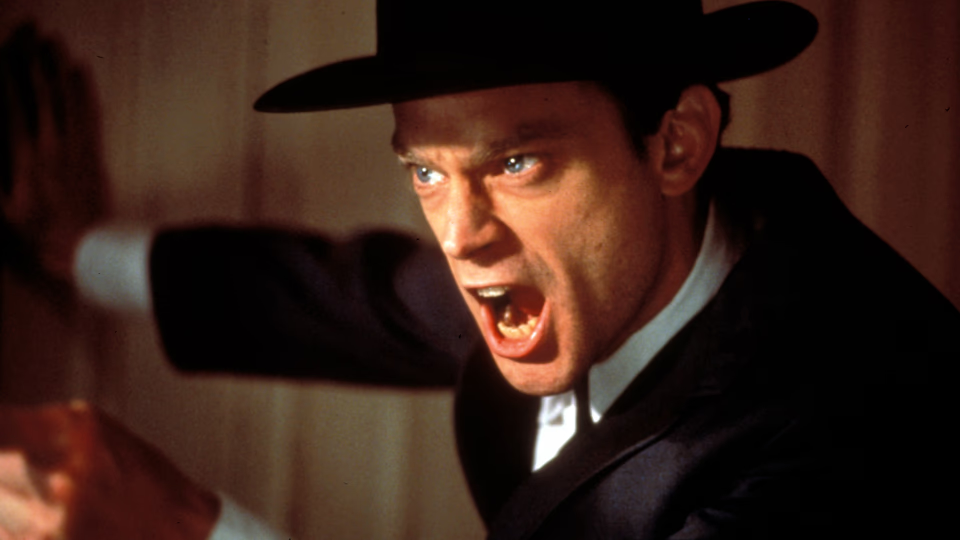Wise Blood

A young veteran (Brad Dourif), recently returned from war founds The Church of Christ without Christ in the Deep South.
Wise Blood is director John Huston’s very literal adaptation of Flannery O’Connor’s novel of the same name. The resulting film is uneven at best, but nonetheless fascinating, if only for lead Brad Dourif’s intense performance, and Huston’s far reaching ambitions.
Dourif carries the film, his seething anger and ambition propelling the story down a dark spiral, as his character takes out his anger on the world, until he’s left with no other target than himself. While a physically larger man may have looked the part more, Dourif makes up for his average stature with a simmering rage that’s just behind his eyes ready to boil over at any moment. It’s a role that could easily have gone over-the-top, but Dourif pulls it off, a feat made all the more incredible given the story’s third act.
Yet, it’s the story that’s the problem. While Huston should be applauded for his intentions, the result is frustrating. The film leaves you searching for something more, a deeper meaning that just isn’t there. In filming the novel literally, Huston makes no adjustment for the film’s lack of access to the character’s thoughts. On the one hand, you could say Huston’s minimalist approach leaves it to the audience to interpret the story’s meaning, but on the other hand, you could just as easily say there’s no meaning to be found. It’s a pitch-black comedy, sure, but just who are we laughing at?
Whatever your view, it’s easy to see why Huston, the original Hollywood maverick, was attracted to the material, given its titular character’s intense aversion to compromising his own beliefs, even when those beliefs paint him into a corner. While Huston nails that aspect, watching the film, you can’t help but think there was something more to Wise Blood that he somehow failed to capture.